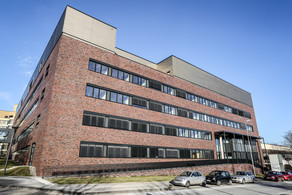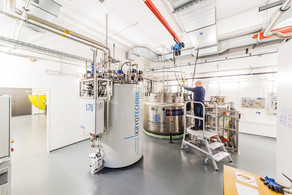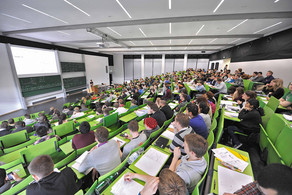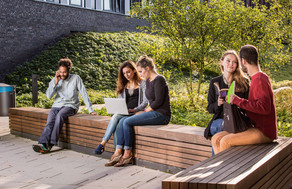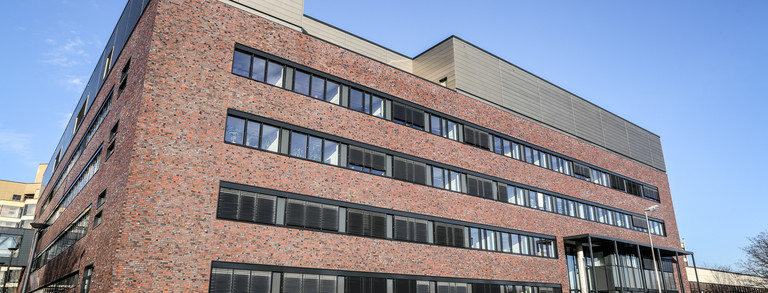How to make hybrid quantum devices work despite strong interactions with environments
- Colloquium

How to make hybrid quantum devices work despite strong interactions with environments
A major obstacle for implementing scalable quantum technologies is the fact that all quantum systems are coupled to their surrounding environment. The approximate modelling of environment effects using Markovian master equations does not capture many important phenomena in real-world devices, such as time-delayed (non-Markovian) feedback resulting in memory effects, the formation of correlated system-environment states like polarons, non-perturbative renormalization effects, and driving-dependent variations in loss and dephasing rates. Moreover, neglecting the true dynamical evolution of the environment also obfuscates ways to mitigate the detrimental impact of environments on device functionality and strategies to use them to one's advantage.
I show how it is possible to simulate the dynamics of a network of hybrid quantum devices strongly coupled to multiple environments in a numerically complete way, automatically including all of the phenomena mentioned above. I discuss how this can be utilized to design novel devices and optimal driving protocols and to investigate fundamental questions such as the stability of collective quantum phenomena like superradiance against strong coupling to phonon baths.
A byproduct of my research during the last few years and within the Return Programme of the State of North Rhine-Westphalia is a prototype for a universal numerically exact solver for open quantum systems networks, which is based on tensor networks in the time domain (process tensor matrix product operators PT-MPOs) and automatic state selection. This code is currently used by several research groups around the world for tackling questions from non-classical light generation in solid-state cavity-QED systems to quantum transport and quantum thermodynamics.
[1] Cygorek et al., Nature Physics 18, 662 (2022).
https://doi.org/10.1038/s41567-022-01544-9
[2] Cygorek et al., Phys. Rev. X 14, 011010 (2024).
https://doi.org/10.1103/PhysRevX.14.011010
[3] Cygorek and Gauger, arXiv.2404.01287 (2024).
https://doi.org/10.48550/arXiv.2404.01287




